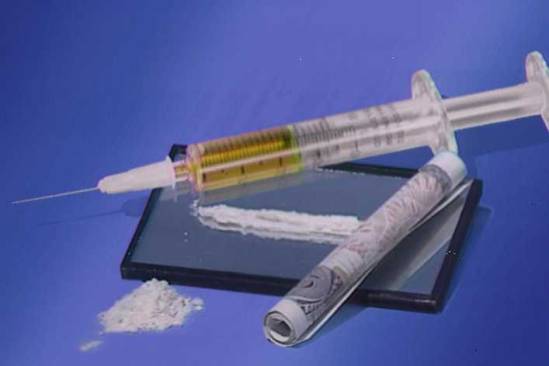Tuesday, May 21, 2013 8:52 PM
(paintings by Correggio)
I’ve been stumped for writings lately—maybe I’ve finally run dry of grumpy-old-man-op-ed essays—who knows? I’d actually like that, I think… I only write those things because I want to expel the bile that festers at my brain when I see intentional stupidity and intentional harm. I’m no cynic—the people that own everything are intentionally making our lives worse—intentionally widening the gap between the haves and the have-nots.
What’s worse is, we help them do this—every time we take a paycheck to look away—supporting a family is no excuse, it only makes it worse, since we are destroying the society they will inherit, while we collaborate in the name of ‘supporting them’. What is the answer? When an entire town is centered around a military complex, what do we do with those townspeople when The Base gets abandoned due to budget cuts? Do we keep it open for the sake of the town? That only sounds correct to the townspeople, god bless’em. Does the government simply walk away, and leave the gutted town to turn ghost in their wake? That sounds wrong to everybody. So, we see at once that simple solutions are not to be had. What do we do?
Do we go out and protest in public? To me, that always seemed like giving too much power to the opponent—telling them to act, instead of us acting on our own initiative—though I suppose the media attention (if you could catch it, and for as long as it lasts) would be valuable. We’d have to come off as the ‘good guys’ on camera, though—and pissed-off people rarely look like ‘good guys’, at first glance.
Sensible people might point out an obvious solution—enact a program of decommissioning an entire ‘economic zone’, not just the Base it once supported. Find (or Found) businesses that are a good match with the town’s focal skill sets. In areas where closing the Base means total evacuation (say mid-desert, like) then enact a program to place the townspeople in other towns still operating as theirs once did. It would still be a breakup of the community, but it doesn’t have to be an economic disaster as well. Letting a whole town full of people go dead broke will cost a lot more, in the long run, than helping them transition to new homes and new jobs.
But all you sensible people out there know the chances of that course of action—none to little. So let’s think about political solutions that approximate the sensible solution. The last two days in Oklahoma have seen recording-breaking tornados (in both size and wind-speed) that devastated communities in Tornado Alley. So we liberals may enjoy the very bleak comfort of saying ‘I told you so’ to the climate-change-deniers, but down in Okie country the praying has been non-stop—the people there have put their faith in the lord—and so cannot be harmed. That explains why they would choose live in an area called ‘Tornado Alley’.
I just know we could be doing all of this stuff so much better if there were better people in politics—but I’m damned if I’m gonna spend time with those nut-jobs. That’s why we need young people in politics—we used to insist on old people because our elders tended to know more than the rest of us. I’m getting into ‘old guy’ territory myself these days—and I can assure you, the people my age and older are as likely to be swamped by the Future Shock Wave that is remaking the globe as they are to have depths of wisdom–which applied to an earlier, pre-internet age—and so may no longer have any relevance to our present times, anyhow!
Only the young guys and gals can even appreciate these new fulcrums of power, and the consequences of blindly trying to do business in the past. Plus, younger men and women are less ‘free for the purchasing’ than old cronies whose lives have always been defined by business. Today’s global business is a threat to humanity—soon, a tiny group of uber-bankers will own the entire world—and us with it, since we’ll all need to make a living.
In the old days, when America and Big Business were synonymous, the famously quoted ‘business of America—was Business’. But that is no longer true. The business of International Mega-Corporations is ‘Business’—the business of we Americans has become ‘fighting a rearguard action against global corporate culture in an attempt to resume control of our own government’. That’s the new business of America.
I’m tired of being proud of my country—it’s that right-or-wrong business—there is so much wrong with our society, our industry, our quality of life, and our Freedom from Fear—and then up pops these Tea Party people-Doh! You know, if the Cold War was still ongoing, I’d be sure that the Tea Party was a fifth-column action to make a nonsense-of-shouting out of what were once the Founding Documents, to turn Freedom of Expression on its head by using it as a shield against those who accuse them of hate-speech—and using Freedom of Religion to suggest that it implies their particular faith is the Default Faith for the whole country.
Their ignorance is epic—but that’s OK, cuz they don’t hold much stock in all the edjicashun nonsense, no how. They are a tremendous threat to our nation. They are the pawns of folks like the Koch Bros. and they even act against their own self-interest—when that runs counter to whatever mind-boink of a narrative cheerleaders like Sarah Palin are feeding them through the mass media they all despise so indignantly—it’s pure stupid, and hold the rest, out there in Tea Party land.
So I’ll be happy to be proud of my country when we start taking it back from the private interests of the super wealthy. I think we should start by refusing to respond to any TV or internet advertising—let’s all agree that we’ll only vote for a candidate when someone we trust gives that candidate a good reference. We should all unite in refusing any electioneering from anyone we don’t know and respect. Word of mouth will be the only criteria that we will base our decision on. And we disqualify all of the incumbents just to make it a clean start. (If we lose a good congressperson, we’ll come to re-elect that person, in time—but we must sand the floor before we slap on the new paint.)
A total re-boot of federal representation via word-of-mouth may result in something more democratic than the moneychangers we endure today—but even if it doesn’t work, they’ll do no less than the last decade of blockage -and- it’ll keep the crooks busy enough to slow their insatiable greed.
Word of Mouth Only! Word of Mouth Only!
Chant it with me now—
Word of Mouth Only! Word of Mouth Only!













































